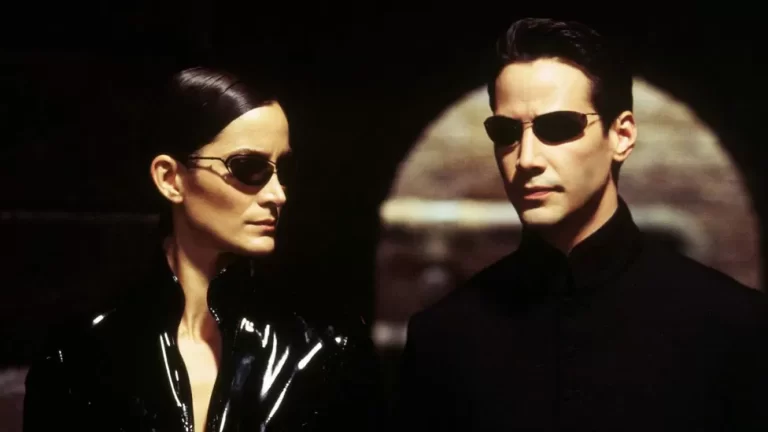Almost 25 years after its release, The Matrix has been reimagined as a live show directed by Danny Boyle to officially open the UK's biggest new cultural venue for years – and parts of the blockbuster film seem more relevant than ever.
When he watched The Matrix when it came out in 1999, Boyle admits some of its themes went over his head.
“I loved it,” he says. “I was a bit baffled, to be honest, and it's kind of swum into view – it's got clearer and clearer in the 20-odd years since it came out.
“You think, ‘Oh my God, it's quite accurate, really, what it's talking about.'” In the film, hacker Thomas Anderson (Keanu Reeves) is told artificial intelligence has conquered humanity and that our lives are in fact part of a computer simulation.
While AI anxiety wasn't new in 1999, fears about its potential power have risen, as have questions about how our perception of reality can be manipulated in an age of alternative facts, whether we're as free as we think, and who's really in control.
Anderson goes on a transformational journey as he switches identities to become hero Neo. Co-writer and co-director Lilly Wachowski has said the film was intended as a metaphor for the transgender experience – but “the world wasn't quite ready”.
Boyle now has a clearer view of the enduring themes.
“There's the role of artificial intelligence in our lives, and how it's growing, and what that does to our perception of questions [about] whether we are free or not, for those who believe very deeply in the Matrix conspiracy that we are already part of the machine,” he says.
“But whether you believe that or not, we're heading that way anyway… or we could be very, very soon.” He continues: “There's the non-binary nature of the casting of the film, which has swum into focus over the 20 years.
“That was as much as they could do then – cast an incredibly feminine action movie star, and mix the genders as much as they could.
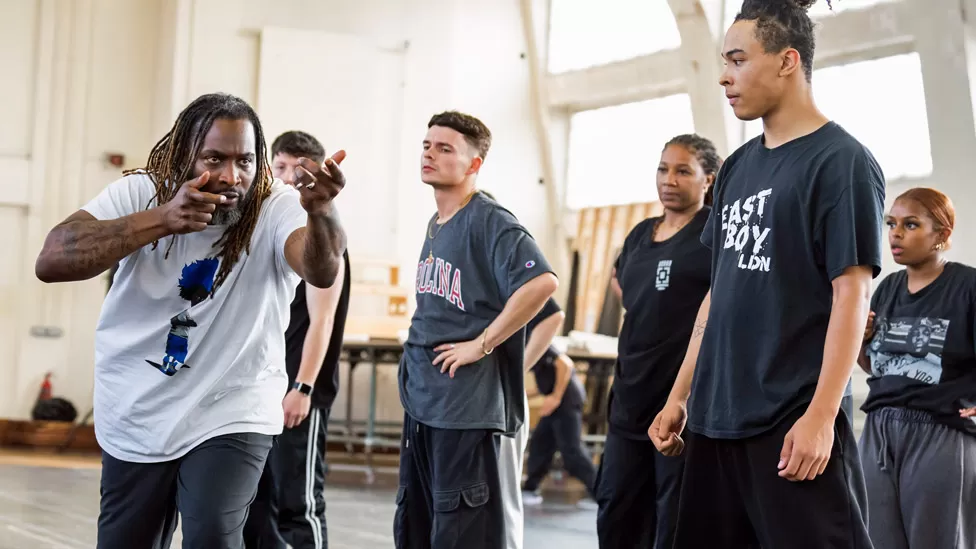
“It's certainly multicultural, the casting, in a way that doesn't matter, and that leans into the future as well.” He adds: “And obviously there's climate change, about man's destruction of the sky – that we scorched the sky.”
Boyle, known for films like Trainspotting, Slumdog Millionaire and 28 Days Later as well as masterminding the 2012 London Olympic opening ceremony, has taken on the Matrix mantle with the stage adaptation at Manchester's new Aviva Studios.
The show takes its title from something Morpheus (Laurence Fishburne) tells Anderson/Neo in the original film: Free Your Mind. Rather than being a direct retelling, the show is billed on posters as “The Matrix… Now”, and brings it up-to-date with new parts about the hold algorithms and big tech corporations have over us.
Oh, and it's all told through dance.
What is real?
Boyle has created Free Your Mind with choreographer Kenrick “H2O” Sandy, composer Michael “Mikey J” Asante, set designer Es Devlin and writer Sabrina Mahfouz.
“We're challenging the watcher to consider the idea of what is real, in the same vein as The Matrix was many moons ago,” Asante says. “But also we're trying to provoke people into [thinking about] what this digital revolution looks like, and when do we see it as harmful or helpful?”
The Matrix wrapped its high concepts in a hugely watchable sci-fi story with groundbreaking special effects and great action scenes. Those famous slow-motion bullet-dodging shoot-outs and martial arts-inspired fight sequences do lend themselves to a dance treatment.
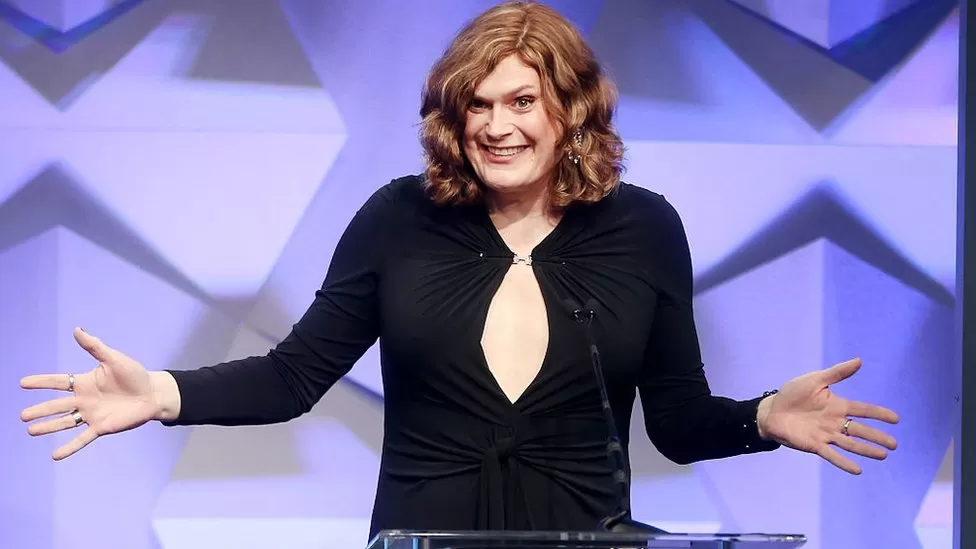
And, as with the film, Free Your Mind audiences should be given a fun night out first and foremost, Asante says. “We want them to enjoy themselves regardless of the messaging because I think that's one thing The Matrix did very well.”
Sandy, who first worked with Boyle on the Olympics, runs hip-hop dance theatre company Boy Blue with Asante – but their first group was called Matrix.
“We were heavily into looking at what The Matrix meant,” Sandy says.
They also got deeply into the sequels, animated series, comics and games, some of which they have drawn on for the show. “So this is like a dream come true. This is a real opportunity.”
Some things from the film haven't aged so well – like the use of payphones to jump between realities – but The Matrix still stands up as “an incredibly good film”, says culture and technology journalist Peter Ray Allison.
“Even if you remove all the effects, the fantastic action, the really tight choreography and direction, it's still a great story,” he says. “And a great story will stand the test of time.
“This is about identity, self-identity, awareness and the realisation of self. It doesn't matter when it was filmed, they are still issues we're grappling with today, if not more so.”
Red pill or blue pill?
Other themes are still swirling around. Some philosophers and scientists (and Elon Musk) believe we may indeed be unwittingly living in a computer-simulated reality. Only last week the front page of the Daily Star (admittedly not the most robust scientific journal) picked up on new research to proclaim: “Matrix May Be Real.”
The film's terminology has also entered wider use. Self-styled free speech and controversial influencers like Andrew Tate use “the matrix” to refer to a shadowy cabal of law enforcement, media, politicians and corporations who are supposedly out to silence them.
“The Matrix sent their agents,” Tate posted on social media after he was arrested in Romania in December on human trafficking and rape charges, which he denies.
Meanwhile, Anderson/Neo's choice between the blue pill or red pill – whether to remain ignorant to reality or to wake up – was seized upon by online communities for whom taking the “red pill” now means men awakening to the “reality” that feminism subjugates them.
“The red pill and the blue pill has become a sort of narrative shorthand in some fringe political circles,” Allison says. “But when you see that, you just think, you're missing the point, mate.” Other big elements of The Matrix, like surveillance, have “very much come to the forefront”, he adds.
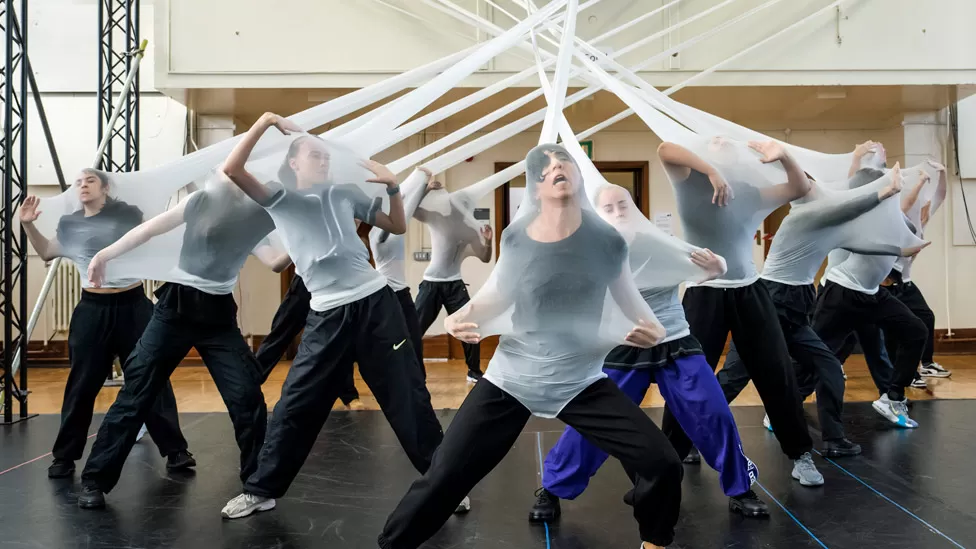
“You could argue that The Matrix prefigured and anticipated the direction we were going to as a society, and that is why 25 years later we're still having these discussions and still having adaptations.”
High hopes for costly venue
This adaptation is the official launch show for the £240m Aviva Studios. Announced by the government in 2014 as part of the Northern Powerhouse, the venue is described as the largest new national cultural project since the Tate Modern gallery opened in London in 2000.
Free Your Mind takes over both sides of the new building – a theatre that can seat 1,600 people, and a hangar-like “warehouse” that can host up to 5,000.
But the venue is four years behind schedule and is expected to go more than £130m over its original budget. The jury will remain out on whether it's money well spent, but its bosses believe it will pay for itself over time by creating jobs and attracting global artistic names, whose work will bring visitors to the city.
Names like Danny Boyle. He originally hails from Radcliffe, seven miles north, and recalls how his first job as an usher at the Bolton Octagon theatre led to his career directing for stage, screen and stadium.
He hopes Aviva Studios will provide similar opportunities for others.
“You want people to come here and begin that journey themselves,” he says. “That would be astonishing.”
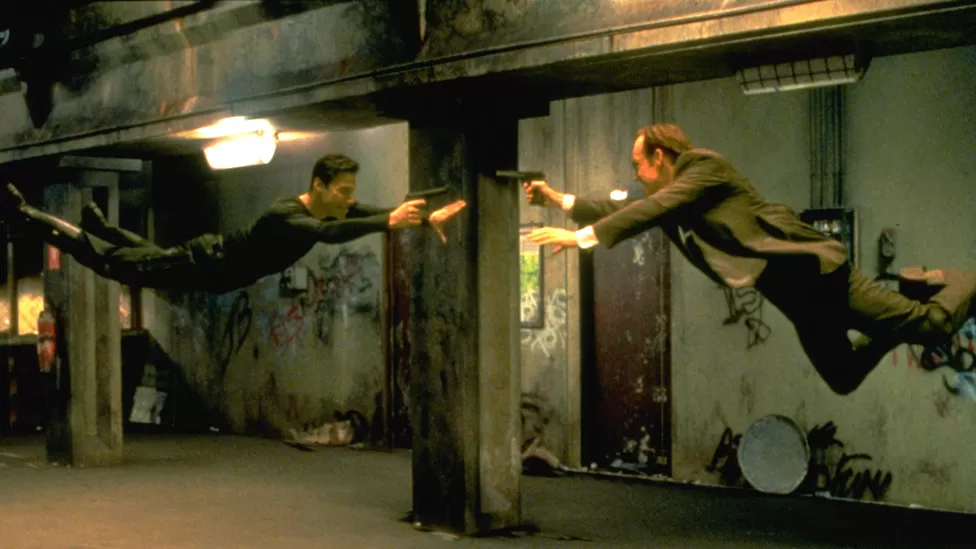
Free Your Mind is at Aviva Studios until 5 November.
— CutC by bbc.com


